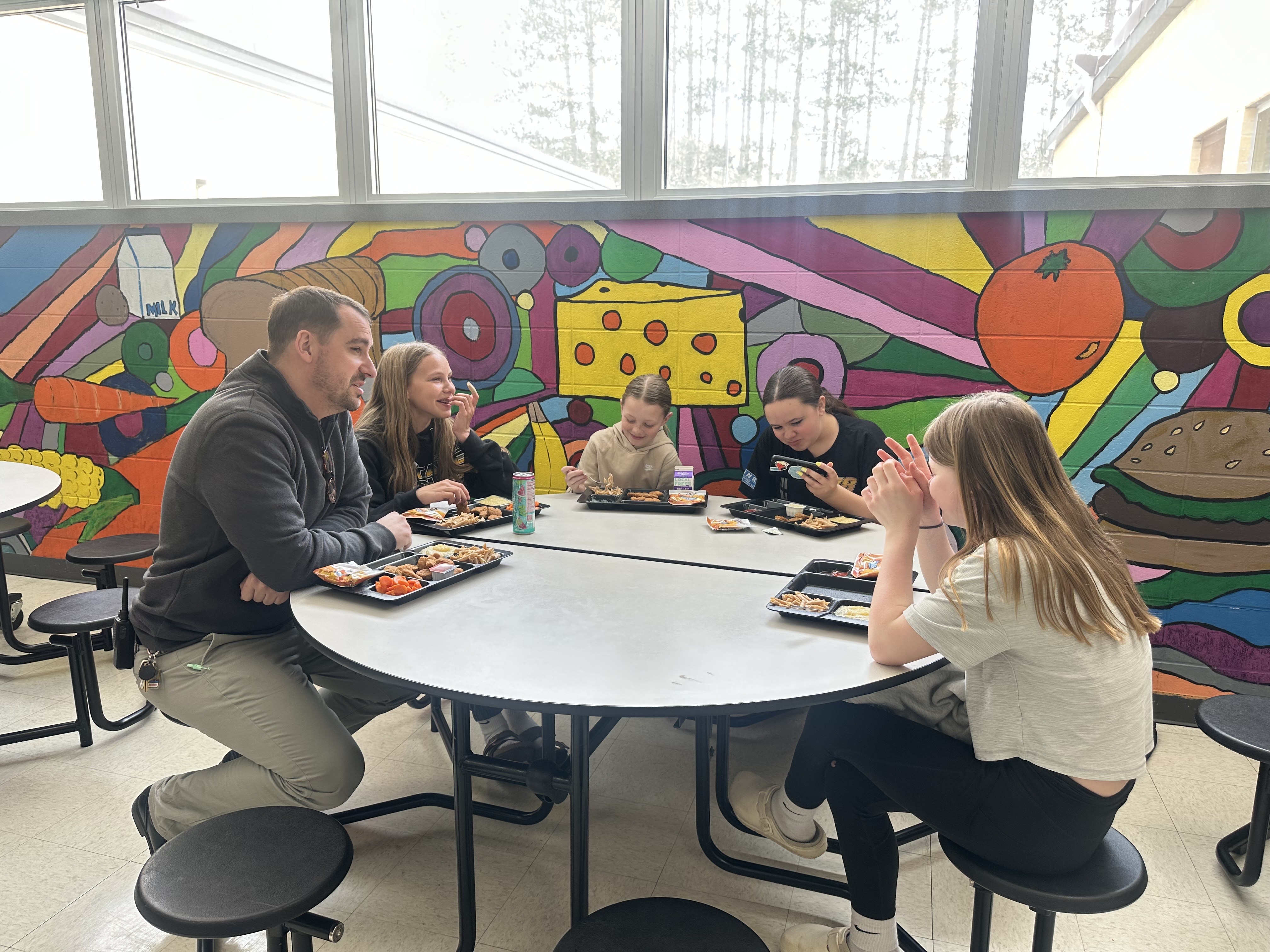By Evyn Appel, Policy Intern
In 2022, National Farm to School Network and our partner organizations launched the “Who’s at the Table” campaign to raise awareness about the importance of values-aligned school meals for all (aka universal meals). This interview series features the stories of real-life individuals who play a role getting food from the farm to student cafeterias. We interviewed a policy maker, principal, school nutrition supervisor, agriscience teacher, food hub produce supplier, parent, and two students from states with universal meals policies or states with strong advocacy coalitions still pursuing a policy.
Jason Bertrand

Jason has been the middle and high school principal for the Laona School District in rural Northern Wisconsin for the past four years and is the incoming superintendent. His career path has taken him to teach in higher education, tribal nations, and now a K-12 district whose student body is 50% Native American from two different tribes. In addition to his role in education, Jason also serves on the Community Coalition of Forest County, a coalition of social impact-focused organizations. Jason strives to use his background in community health and counseling to give students in his home state the opportunities that he didn’t have growing up.
Q: Thinking back to picking a career path, what motivated you to work in education and eventually narrow to K-12 settings?
Jason: I think about my own personal development in middle and high school. I struggled with a lot of different things, but I didn't really have anyone to turn to and talk to about that. I wasn't close in my relationships with coaches, or teachers or administrators because it was a big school. But in college, I did have those role models and I did have those people to turn to and connect with and help guide me in a lot of different ways. So I wanted to be that person for all students.
Q: What is your favorite thing about your job as principal?
Jason: I would say, being able to connect with the students that are maybe underrepresented, so not your star athletes, or your 4.0 students, but being able to connect with those students that may be struggling. This week we had storms, so no one had school this whole week. Luckily I was able to come to town and check in on a lot of individuals, but knowing that this is a place where students are fed, and we know that they’re going to be loved and get the attention that they need, that’s what I really love about this position.
Q: What does breakfast and lunch look like at Laona School District?
It’s a really positive environment for the students.
We've allowed them to bring their breakfast into the classrooms, so I'll walk around with our biscuits and gravy and say, “You guys need to check it out because this is so good!” Then I'll tell our chef “Hey, just a heads up, I'm talking to students today about how good this is!” So he's like, “All right, we may have to put some more biscuits in,” because he knows that when I walk around and I'm spreading the word, that a lot of the kids are going to be coming in.
Also we're under a CEP (Community Eligibility Provision) program, because our area has such high poverty rates, so right now our students get free breakfast and free lunch. Federally, that may look a little different in the coming years, but we hope that we're still able to provide that. Some of the students that come from districts where it's not CEP, are just so excited that it's available here, and that all the students are in the cafeteria and having a good time and excited about the options of what they have.
In our middle school, we have 3 or 4 students that bring their own lunch just because of some allergies and personal preferences, but other than that, these kids are eating the school lunch. And I've worked where they’re swiping and putting in their code, and I'm making sure that we're listing them and that they're eating lunch everyday. I'll check the gym and say, “Hey, now is the time if you guys want to eat!”
Q: What would be the impacts of a school meals for all policy in Wisconsin?
Jason: There's so many reasons why that would be an incredible thing. And I think a lot of it comes to the mental health of students to be honest. Maybe they're not comfortable going to lunch, or they don't have the funds, or they have a negative balance so they're gonna skip lunch or say that they're not feeling well. But if they don't have the nutrients in their body, they're not going to be able to concentrate and pay attention. It's obviously a huge physical health issue as well. Where are they going to be able to get those nutrients? With these universal policies that are being passed in different states, it's opening up that opportunity for students to be able to enjoy the company of friends at the table, and to be able to enjoy a great meal throughout the week. There's just so many benefits and facets of how that could help our students.
